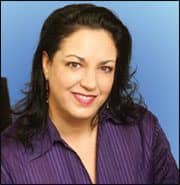
Only in health care, it seems, does support staff get reprimanded for responding quickly to an emergency. This may very well be related to the importance and extreme dependence clinicians have on health care technology and the raw frustration they feel when it does not work. Such regular visits, however, should not be merely gratuitously disguised breaks. You need to arrive observant, looking for things that may be out of the ordinary, checking up on previously resolved trouble spots, and simply and sincerely asking how everything is going. Getting out on the floors and checking in with your customers may be an uncomfortable process, especially for the introverted BMET or CE, but the rewards can be substantial.
A serious and somewhat negative consequence of any support service is that the more effective and efficient you become, the more invisible you tend to appear. If equipment users see that everything is working virtually all of the time, they naturally start to take such reliability for granted. In time, the efficient and well-managed biomed department—without having established this positive sense of visibility—will tend to become invisible. It is often then that others may start to ask, “Who are these guys, and what do they really do?” Making regular visits to your customers can neutralize this downside of service efficiency. Once this practice of making daily rounds is started, however, it has to be continued. Clinicians will eventually start to expect it.
Once, about 30 years ago, I didn’t get to the intensive care unit for a few days—while some device sat broken. Later, in exasperation, I asked, “Why didn’t you call me?” Their response was, “Oh, we knew you’d eventually show up.”
Unfortunately, and within many organizations, this practice of making rounds may have been displaced by the now somewhat obsessive and dysfunctional emphasis on productivity and accounting for every millisecond of your day. To be truly effective, the making of rounds cannot be viewed as a “billable service.” You should not be required to document every minute you are out building goodwill and identifying latent defects throughout the hospital. Such a requirement only discourages the practice. Of course, department managers need to be fiscally accountable, and appropriate time recording is essential. The making of rounds, however, should be viewed as a “value-added” service that is associated with your department and its professional responsibilities. This is one activity that you should not worry about having to document.
The BMETs at Dayton Children’s Medical Center are to be commended for keeping this practice of daily rounds alive and sharing it with the rest of us. It works, and it will speak volumes about you and your department.
Larry Fennigkoh, PhD, PE, CCE, is an associate professor of biomedical engineering at the Milwaukee School of Engineering.
| What’s on Your Mind? Got a gripe? A recommendation? Does someone or something deserve praise? Share your opinions and insights with your peers. Soapbox columns should be 700–750 words in length and can be e-mailed to [email protected]. |




